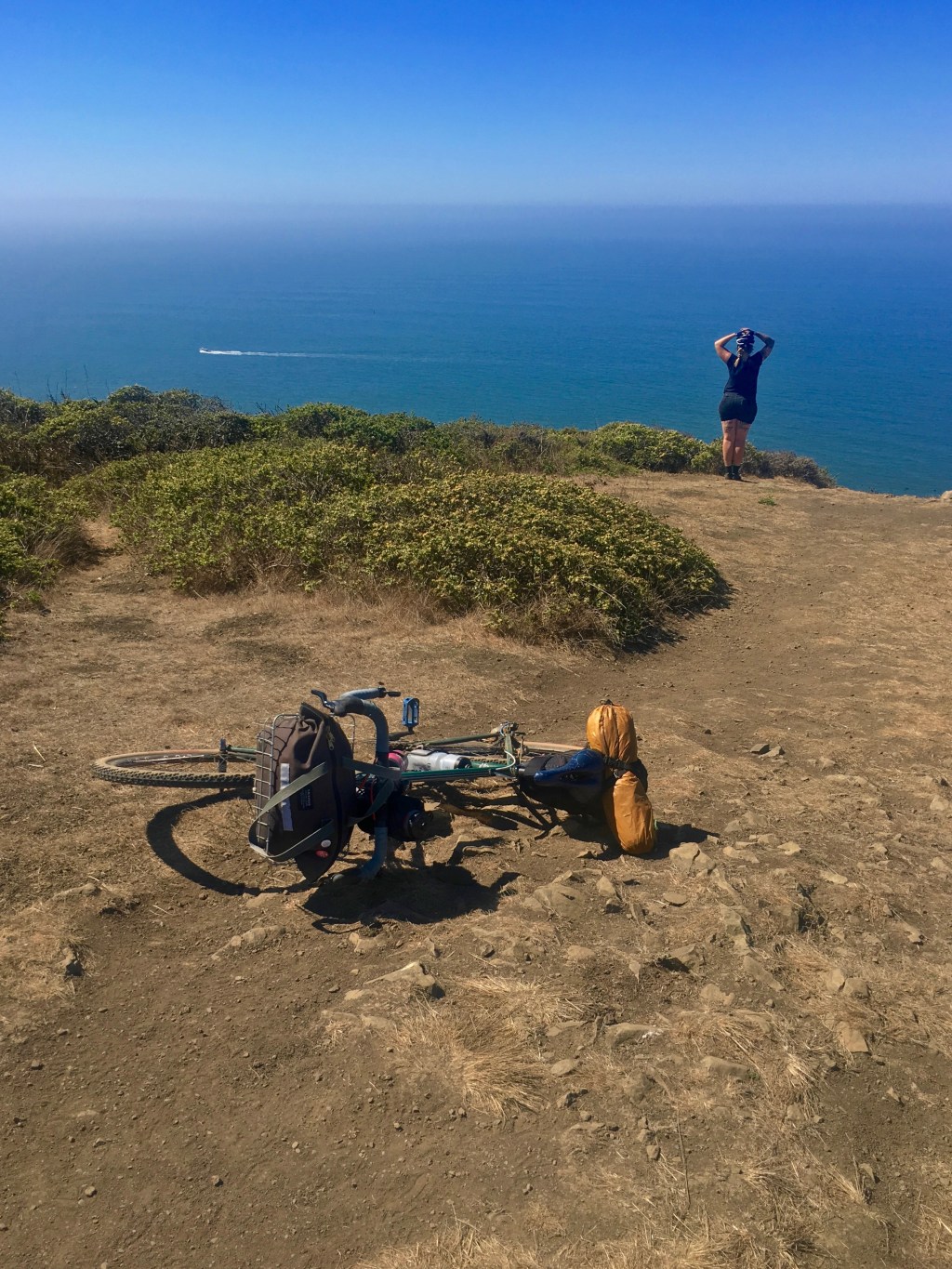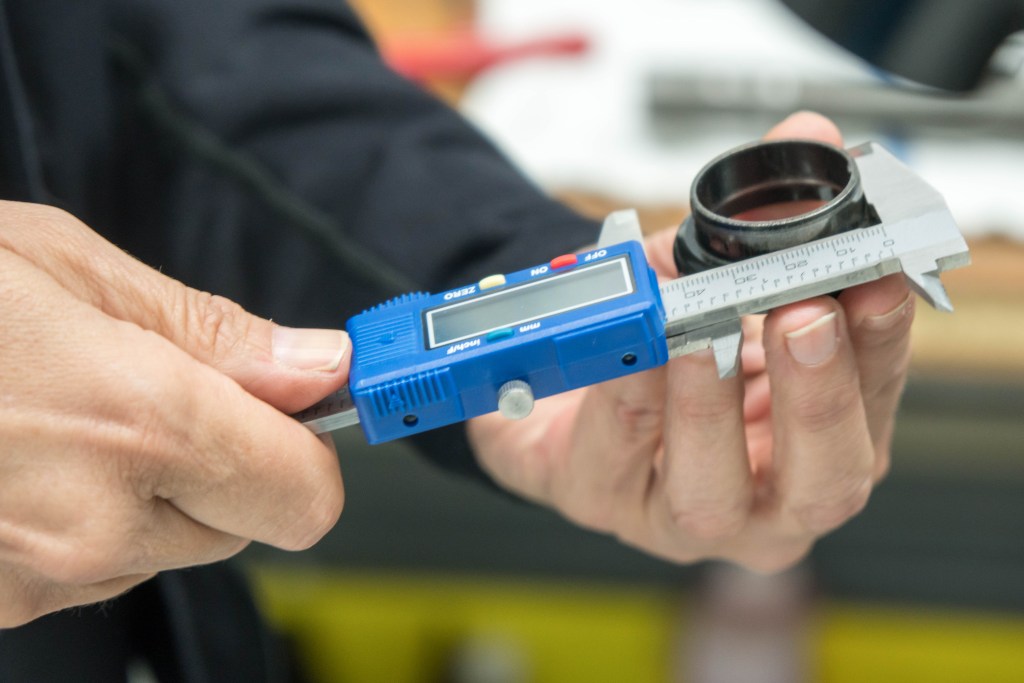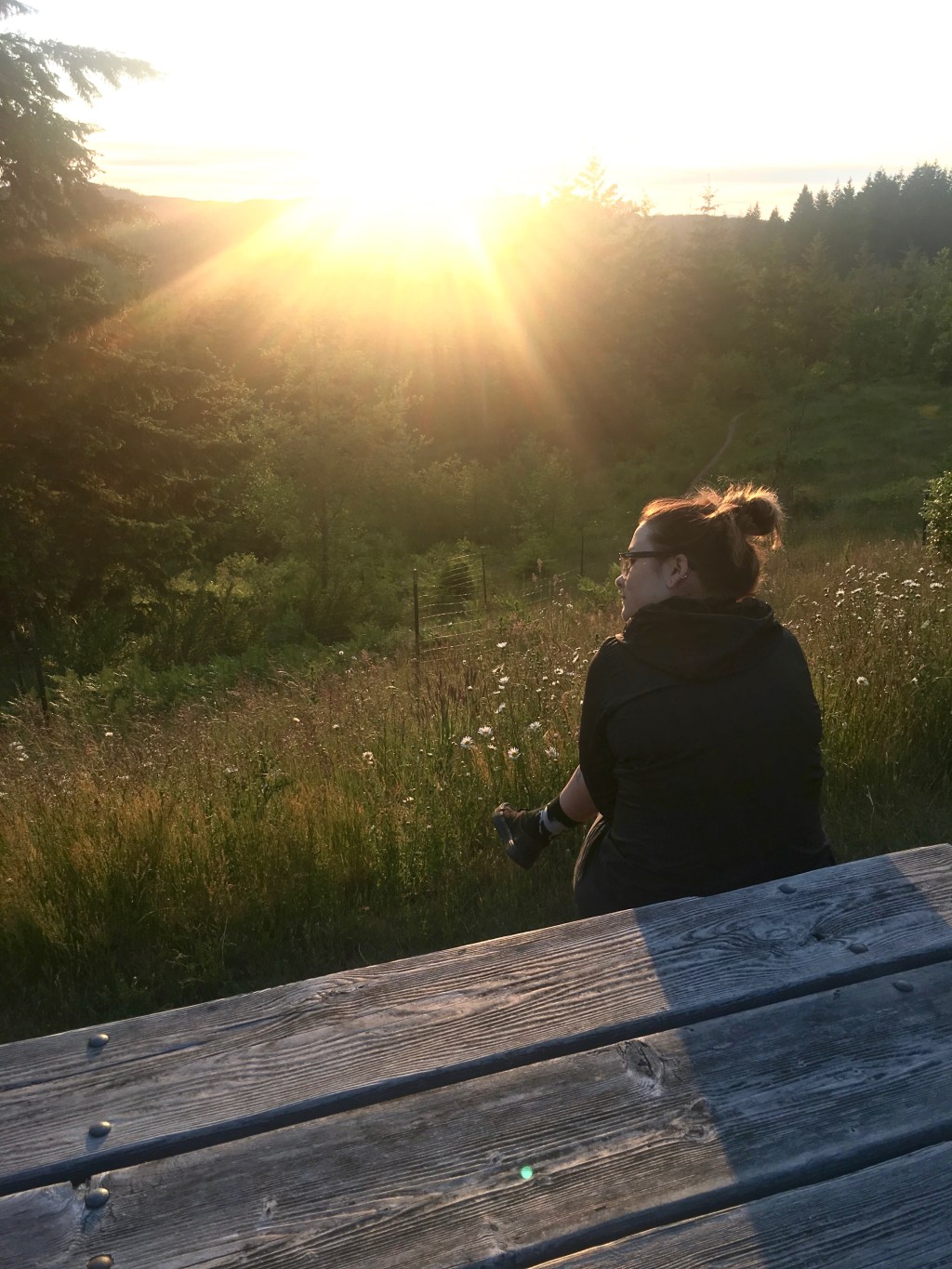I caught up with Jacinta “J” Higgins as she waited for a flight to Colorado, where she’d be learning the intricacies of new Cannondale suspension systems at REI Denver. Her next scheduled stop was Sacramento, where she looked forward to talking shop with fellow craft-cycling fans at the North America Handmade Bicycle Show. As REI’s Portland-area market shop coordinator, Higgins ensures the co-op delivers what cycling customers want while helping to refine the skills of a team of 40 bike mechanics at eight Oregon stores. It’s a dream job for someone who has spent a lifetime learning about—and loving—bicycles.
“I love learning new things so I can build expertise in our bike shops,” said Higgins. “We want people to get stoked on bikes and learn more about them—to build a community that makes people want to ride.”
Her passion for cycling is contagious, but if it weren’t for a pivotal experience at REI several years ago, she might have given up working in the industry altogether. Higgins’ career in bikes began accidentally, when she was 16 years old.
“I walked into a bike shop looking for a part and realized that I knew more about it than the guy helping me,” she said. “They had an opening and hired me on the spot.”

J on a bike-packing trip overlooking the Pacific Ocean. Photo by Ashley Hockersmith
But the job had unspoken boundaries that became more apparent the longer she worked there. Higgins came to realize that invisible obstacles were endemic to the biking industry as a whole—women were not asked nor welcomed to step from jobs on the sales floor into jobs in the shop.
Though she loved all things bike—from building them and fixing them to selling them and riding them—she was eventually worn down by a demeaning ethos where her talents were measured by gender not skill. After more than a decade working in everything from mom-and-pop family shops to a worker-owned collective, a particularly overbearing boss pushed her too far. Higgins turned in her wrench, packed her panniers and pedaled off on a head-clearing long-distance bike tour from Seattle to the Mexican border.
She returned to the Bay Area in 2012, rejuvenated but determined she wouldn’t return to her former job. Having heard good things about working at REI, Higgins applied for a bike tech position at the Berkeley store to test the waters as she mulled over her next chapter. She got the job, and what was intended to be a temporary gig stretched into six years of engaged learning, career advancement and a renewed love of cycling.
“It was an incredible transformation. I dealt with a lot of stuff I hope nobody ever has to deal with—blatant sexism and harassment,” she said. “At REI, I was hired directly into the bike shop and everyone was supportive from day one. It was the first time I felt valued for my work and it had nothing to do with gender; they saw me as a leader and encouraged my development.”

Hands on training at Barnett Bicycle Institute. Photo by Ashley Hockersmith
By 2018, Higgins had moved through the ranks from tech to master tech to her current role in Oregon. She says one things that sets the co-op apart is its commitment to training and continuing education. Every REI bike shop is staffed by a master tech, certified tech or both. Many of them bring years of experience to the job, on top of which REI invests time, energy and money in trainings at accredited bicycle industry schools to ensure an ever-widening skill set.
“Our highly-trained techs make us leaders in the industry,” Higgins said. “I see REI bike shops as unsung heroes. I had never before worked for a bike shop and had health care, genuine support and encouragement from my peers and superiors, plus access to boundless trainings and opportunities.”
Though REI has excelled in tech expertise for years, the co-op struggles with a challenge reflective of the industry as a whole: most bike shop employees are men. Looking for a way to chip away at this gender imbalance, in 2017 REI sponsored an all-woman bike tech course at Barnett Bicycle Institute in Colorado.
“There is not a lot of gender diversity in our bike shops and this training was a big opportunity to begin to change that,” said Higgins, noting that the focus is not only on the male/female balance—REI is investing in all intersections of diversity to reach and serve everyone in the cycling community.

J on a bike-packing trip taking in the sunset. Photo by Ashley Hockersmith
Higgins, who attended the Barnett course as a mentor for the group of 16 apprentices, is impressed that the two-week experience has had such a long-lasting impact. In addition to graduating an enthusiastic new crew of highly trained technicians (including Megan Ryan, who is now REI’s San Francisco market shop coordinator), the training united a supportive community that continues to connect today. Even though they were of different ages and backgrounds and from different parts of the country, they bonded over a shared curiosity around bicycle mechanics and working with tools.
“I watched these women find confidence and excel in something many of them had been taught to fear. The solidarity that grew over those two weeks is indestructible,” Higgins said.
Higgins is always looking for new ways to make working in bikes accessible to anyone who wants to give it a spin.
“We are pushing to create offerings and space to challenge the status quo and doing our best to build up women and others who are underrepresented in our shops,” she said. “With motivation and training, anyone can do wild and wonderful things in any facet of the cycling industry.”
